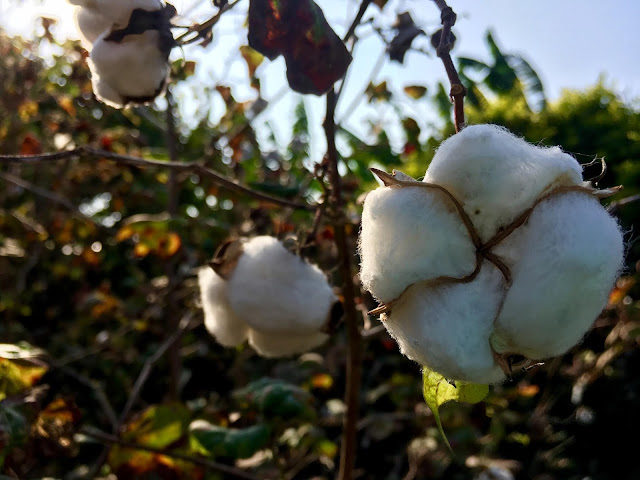
Last month, we went to Yunlin to eat Sien You Hot Pot for my birthday. Some time ago, I found information about cotton fields in the neighborhood, so I really wanted to go there and see them. The field is not big and is used to showcase the history of cotton. Before visiting, you need to make a reservation, and the visiting time is very limited, from 9-11AM or 2-4PM. The ticket costs 150NTD per person. For me, it was a very interesting place, and I also learned that cotton is not always white! You can find coffee-colored or even green cotton. We also visited a nearby towel factory, but I'll talk about that in the next post.
Organic Cotton Fields (雲端埒活棉花田)
As you know, many of the clothes we wear are made from small white cotton. In Taiwan, there have been very few people planting cotton. However, in the south of the country, there is a record of cotton cultivation. With the opening of cotton imports by the WTO, the price of exotic cotton became low, and Taiwan's cotton agriculture quickly became history. In 2014, some people started to grow organic cotton in Huwei, Yunlin. They wanted to use cotton to reconnect with local memories and inject new vitality into industries and communities.
The flowering period of cotton is from June to September, and each flower is only open for three days. The period from November to March is when the most cotton buds are formed.
Zheng Zongkun was the first person who wanted to cultivate long-forgotten cotton in Huwei. In his forties, he made a career change and decided to leave the air-conditioned office and work in the cotton field. Then, he thought about the fact that this is the hometown of towels, which is an excellent cultural feature. So he decided to overcome all the difficulties and let the cotton that had disappeared in Taiwan for nearly 60 years regain its vitality!
Most of the farmland was planted with peanuts and corn, and most of the villagers used traditional farming methods. In order to create a better environment, Zheng Zongkun chose to cultivate in a more eco-friendly way. He used his own efforts to drive the village towards change. Zheng Zongkun decided to plant the cotton that had been lost in his hometown for many years. When Zheng's father heard about it, he thought it was impossible to find the original species. Zheng Zongkun searched for half a year and finally obtained the seeds through a pipeline. The related planting techniques were unknown, so he continued to gather information and seek advice from others.
Then, he thought about the fact that this is the hometown of towels, which is an excellent cultural feature. So he decided to overcome all the difficulties and let the cotton that had disappeared in Taiwan for nearly 60 years regain its vitality!
Having never done any farming work before, Zheng Zongkun worked in the fields during the day and attended the Peasant University organized by the Yunlin County Government to study organic agriculture. By chance, he found an 80-year-old veteran named Chen Mars in Chiayi, who had an old and worn cotton seeder. It was like finding a treasure. Zheng Zongkun carefully asked the senior for advice and took notes. He wanted to pass on the history of Taiwan's cotton.
The most challenging problem in planting cotton is dealing with pests and diseases. In the past, farmers used pesticides to solve these issues, which often led to pesticide poisoning incidents. If Zheng Zongkun wanted to grow organic cotton, he had to find local methods to combat pests, such as the chafer beetle that loves to eat cotton leaves. He needed to catch them, but if he released them, they would just return. Doing this kind of work every day seemed foolish, but he was unwilling to give up on his organic dream. The following year, he decided to raise some chickens on the cotton farm.
The challenges Zheng Zongkun faced were not limited to pests and diseases. Delicate cotton is also susceptible to damage from wind and rain. Zheng tried different methods to improve the situation and was always open to new ideas.
He combined ecological experiences with the towel industry in the Huwei area, allowing people to understand the ecology of cotton and bringing local children into the cotton field to learn about industrial raw materials. Huwei is a major town in Taiwan known for making towels. Faced with the impact of imported towels from China, the local industry made great efforts to develop new strategies and create various styles of towels to become local specialty products.
By breaking away from the traditional farming practices in Yunlin, the business model proposed the combination of culture and agriculture to upgrade Taiwan's cotton, complete the upstream and downstream of towel production, and add creativity to turn Taiwan cotton into art. With this business model, Yunlin's farmers have come to understand the importance of abandoning pesticides, focusing on cultivating a friendly environment, paying attention to quality, and finding the unique selling points of their products. This approach has created greater value compared to traditional farming methods, proving that competition based solely on production volume is not the best option.
See also: Xinglong Towel Sightseeing Factory


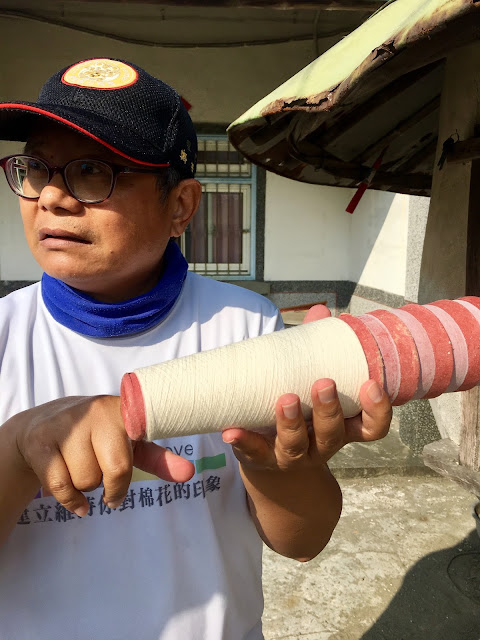

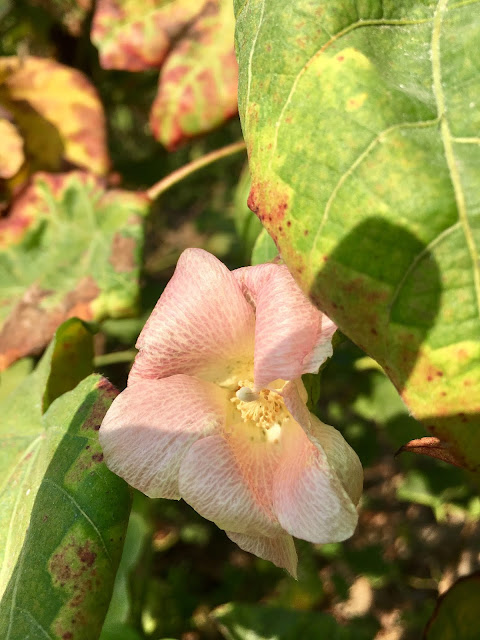
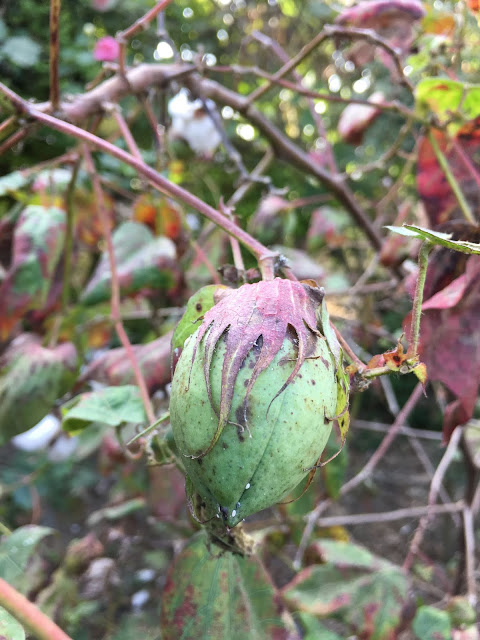
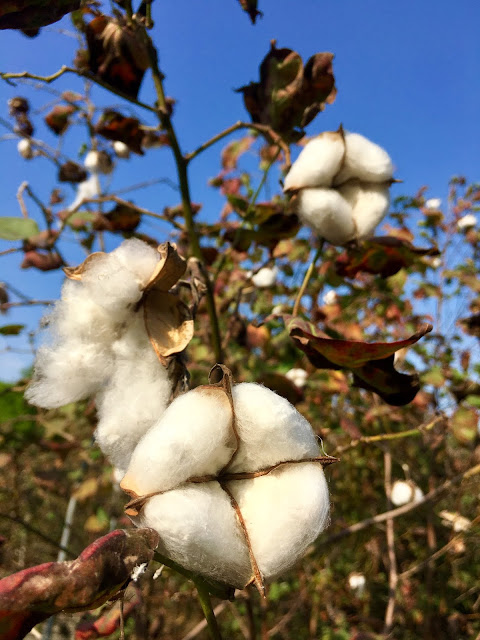
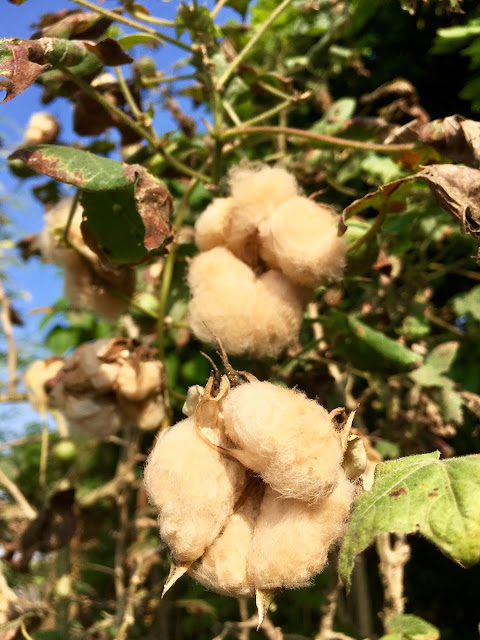

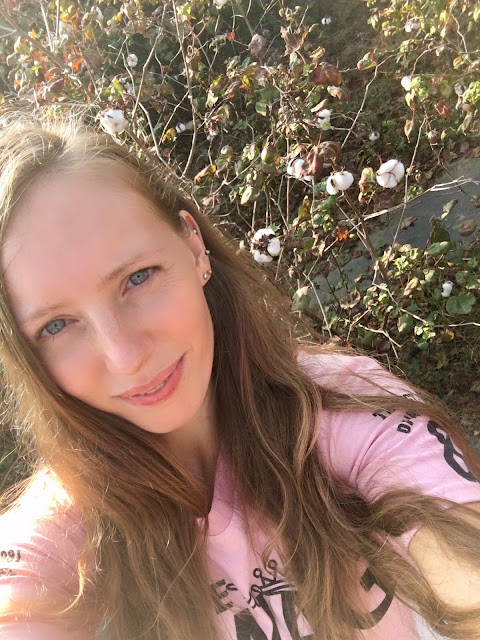









Are you still living in Taiwan?
ReplyDeleteBefore reading this I had thought that cotton would not grow in Taiwan.
ReplyDelete